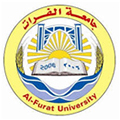آخر الأخبار
أثر سياسة الدعم الحكومي في زيادة الإنتاج لأهم المحاصيل المروية في محافظة دير الزور
2013, Volume 8, issue 30,pp 239-259| Cite as
The Impact of the Policy of Government Support in Increasing Production of Major Crops Irrigated in Deir ez-Zor Governorate
| authors |
Nasser Shabab , Hussein Hassan |
| Abstract |
Syrian agricultural policy aimed to liberalize foreign trade and distribution of inputs and provide opportunities for all other sectors to participate actively in the development of agricultural production through increased economic efficiency in the use of available natural resources. Study on comparative advantage describes the extent of State intervention in support of agricultural crops through the granting of incentives to producers to expand cultivation, in order to achieve an increase in production. The implementation of this research in the governorate of Deir ez-Zor in view of the size of irrigated area which is attributed (10.08%) of the total irrigated area in Syria for 2010. Focused research objectives to determine the impact of the policy of Government support in increasing the production of most crops irrigated Zor, And can be summarized as the search problem in reaching the determination whether there is Government support provided through strategic crops — support the purchase price of these crops of local producers as well as for production supplies prices. Or no support for crop prices and production requirements. Are there taxes on inputs, and put the appropriate hypotheses for problem search method was used, and policy analysis matrix. The considered period was divided into two periods: the first (1993-2004) and the second period (2005-2010). Been to achieve research objectives depending on the outcome of the policy analysis matrix method. The results of the analysis showed that the comparative advantage of scale value is less than (1) for each of wheat and maize for study periods, i.e. the cultivation of these crops have enjoyed comparative advantage and the value of this scale more than (1) the study periods for cotton Fidel on growing this crop does not enjoy comparative advantage, The research concluded that a package of recommendations including the adoption of the principle of comparative advantage when cropping, selecting the most profitable crops, and any goods must stop planting and resorting to importation, and meat when planning agricultural productivity of each region in Syria.
Keywords: economic efficiency, comparative advantage, agricultural policy analysis |
| الكاتب |
ناصر شباب, حسين حسان |
| الملخص |
هدفت السياسة الزراعية في سورية إلى تحرير التجارة الخارجية وتوزيع مستلزمات الإنتاج و إتاحة الفرص أمام كافة القطاعات الأخرى بالمشاركة الفعلية في تطوير الإنتاج الزراعي عن طريق زيادة الكفاءة الاقتصادية في استخدام الموارد الطبيعية المتاحة . توضح دراسة الميزة النسبية مدى تدخل الدولة في دعم المحاصيل الزراعية من خلال منح الحوافز التشجيعية للمنتجين للتوسع بزراعتها ، بغية تحقيق زيادة في الإنتاج. وجاء تنفيذ هذا البحث في محافظة دير الزور نظرا لحجم المساحة المروية التي تشكل نسبتها (08. 10 %) من مجموع المساحة المروية في سورية لعام 2010. ركزت أهداف البحث إلى تحديد أثر سياسة الدعم الحكومي في زيادة إنتاج أهم المحاصيل المروية في محافظة دير الزور، وتلخصت مشكلة البحث في التوصل إلى تحديد فيما إذا كان هناك دعم حكومي يقدم للمحاصيل الاستراتيجية من خلال - دعم أسعار شراء هذه المحاصيل من المنتجين المحليين بالإضافة لأسعار مستلزمات إنتاجها. او عدم وجود دعم لأسعار المحاصيل ومستلزمات إنتاجها. وهل هناك ضرائب مفروضة على مستلزمات الإنتاج ، ووضعت الفرضيات المناسبة لمشكلة البحث ، وتم استخدام أسلوب مصفوفة تحليل السياسات. وقسمت الفترة المدروسة إلى فترتين: الأولى (1993-2004) والفترة الثانية (2005 - 2010) . تم التوصل إلى تحقيق أهداف البحث بالاعتماد على نتائج أسلوب مصفوفة تحليل السياسات . بينت نتائج التحليل بأن قيمة مقياس الميزة النسبية كان أقل من (1) لكل من القمح والذرة الصفراء الفترتي الدراسة ،أي أن زراعة هذين المحصولين يتمتعان بميزة نسبية، وإن قيمة هذا المقياس زادت عن (1) لفترتي الدراسة بالنسبة للقطن فيدل ذلك على أن زراعة هذا المحصول لا يتمتع بميزة نسبية، خلص البحث إلى حزمة من التوصيات منها اعتماد مبدأ الميزة النسبية عند زراعة المحاصيل ، واختيار المحاصيل الأكثر ربحية، وأي من السلع يجب التوقف عن زراعتها واللجوء إلى استيرادها، ولحظ ذلك عند وضع الخطط الإنتاجية الزراعية لكل منطقة من المناطق في سورية.
الكلمات المفتاحية : الكفاءة الاقتصادية ، الميزة النسبية ، تحليل السياسات الزراعية |














